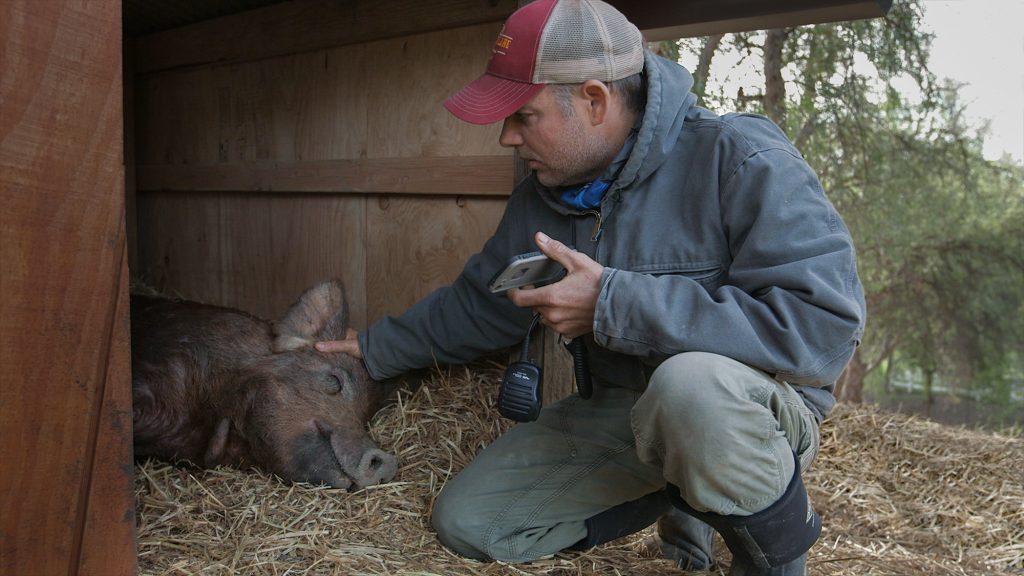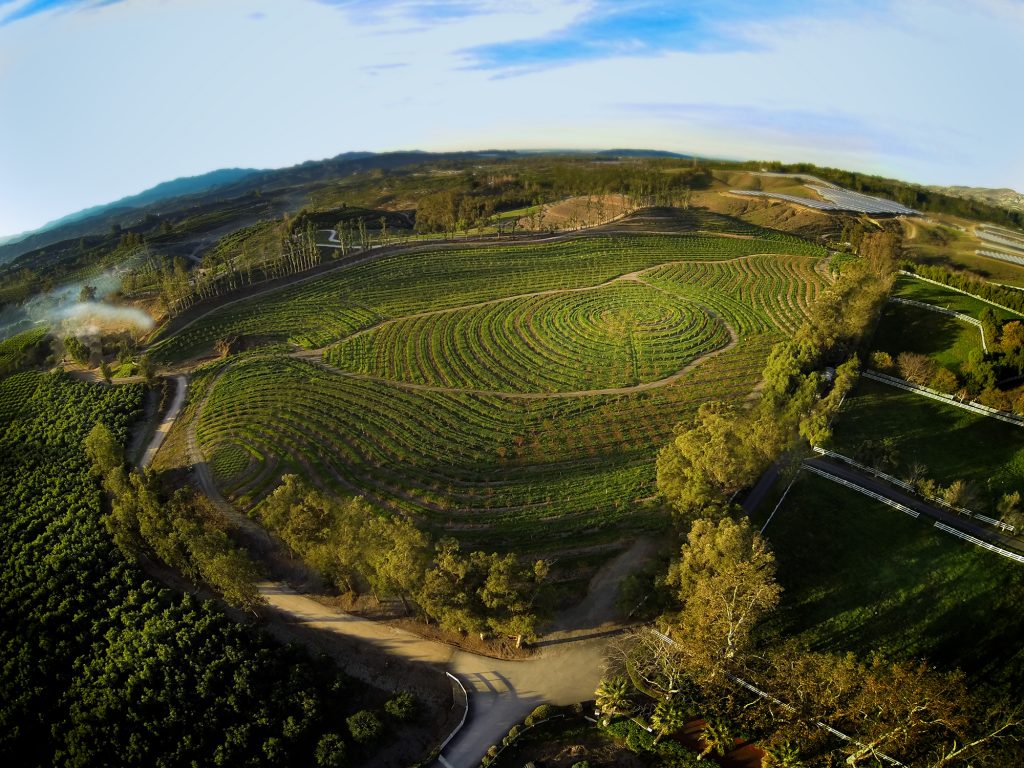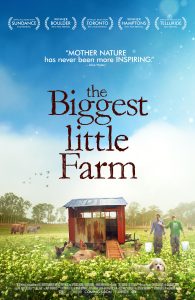
Increasingly, documentary films are my favorite form of entertainment. My top film experience for 2018, FREE SOLO, forever altered my previously held perception that only blockbusters can keep you on the edge of your seat.
So perhaps it’s not surprising that THE BIGGEST LITTLE FARM charmed me immensely. I’ve been thoroughly captivated by this project, which masterfully chronicles John and Mary Chester’s quest to live in harmony with creation on their “traditional foods” Apricot Lane Farms, doggedly pursuing their goals despite continual challenges.
Synopsis:
THE BIGGEST LITTLE FARM chronicles the eight-year quest of John and Molly Chester as they trade city living for 200 acres of barren farmland and a dream to harvest in harmony with nature. Through dogged perseverance and embracing the opportunity provided by nature’s conflicts, the Chester’s unlock and uncover a biodiverse design for living that exists far beyond their farm, its seasons, and our wildest imagination. Featuring breathtaking cinematography, captivating animals, and an urgent message to heed Mother Nature’s call, THE BIGGEST LITTLE FARM provides us all a vital blueprint for better living and a healthier planet.
Is the idea of living a life in “perfect harmony with nature” truly possible? Does it even matter?
In screening the magnificent work of art created here by Director (and farmer!) John Chester, I was reminded of a quote from Pope Francis’ 2015 encyclical letter Laudato Si’ (On the Care of Our Common Home):
If we approach nature and the environment without…openness to awe and wonder, if we no longer speak the language of fraternity and beauty in our relationship with the world, our attitude will be that of masters, consumers, ruthless exploiters, unable to set limits on their immediate needs. By contrast, if we feel intimately united with all that exists, then sobriety and care will well up spontaneously. (#11)
It was this Pope Francis quote in my heart that put into context John and Molly’s mission. This is not a faith-based film, but FARM has probably underscored the message at the heart of Laudato Si’ as much as any theological treatise I’ve read on the encyclical.

It’s unlikely that I will ever step away from my urban Los Angeles home lifestyle to farm as John and Molly do. But increasingly I feel the tug of personal responsibility about how my lifestyle choices impact not only our environment but also my own faith life. For over a year, I’ve chosen a vegetarian diet. I don’t share that to boast or judge, but rather to offer one example of a choice that is still quite challenging for me personally. Choosing not to eat certain items is for me a very small way of trying to live in greater solidarity with our natural surroundings. But it’s also, and perhaps more significantly, to try to find a way of living in closer solidarity with those in our world and in our own communities who go without even basic nutrition. And I’ll be honest: most days, it’s hard.

So it’s from this vantage point that I was glued to my screen for 91 minutes watching THE BIGGEST LITTLE FARM and why I was disappointed as the final credits rolled far too soon. I wanted more: more John and Molly, more magical cinematography, and especially more of the perseverance and personal conviction that for me truly made this film so compelling.
As a girl, I was a huge fan of the Little House on the Prairie television series. Growing up in a suburban home in Southern California with zero exposure to farming, I remember wondering WHY “Pa” Charles Ingalls would ever choose to farm when nearly every week he faced such horrible obstacles. Those Little House fangirl memories flooded over me as I watched John and Molly Chester’s eight-year obstacle-ridden journey to turn dead dirt into a thriving ecosystem. Along for the tractor ride in this film, we witness not only the Chesters’ familial relationship as it sustains so many challenges. We also meet their farming mentors and partners and the many animals who are a living, breathing part of what this family continues to create on their now revitalized land in Moorpark. What’s remarkably captured here is the incredible interconnectedness of nature–of people and pigs and poultry and predators and pests–and how all of these elements function together to create and sustain life.
For me personally, watching THE BIGGEST LITTLE FARM while undergoing some of my own life’s biggest little challenges is a reminder not to give up. Life is often hard. We may have a vision for our lives, but it’s a reality of our earthly existence that things often do not go according to our well-laid plans. John and Molly Chester taught me a lot about food and farming. But my greatest lessons from this film are the reminders to persevere, to pay attention to the entire realm of my existence, and to try to remember to count my many blessings as I face daunting obstacles that make me want to give up.
Rated PG (for mild thematic elements and brief language), THE BIGGEST LITTLE FARM is a film for every person facing hardship, every soul in search of a mission, and every dreamer.
Learn more and find tickets at a theater near you at TheBiggestLittleFarmMovie.com.
